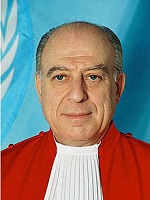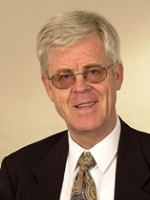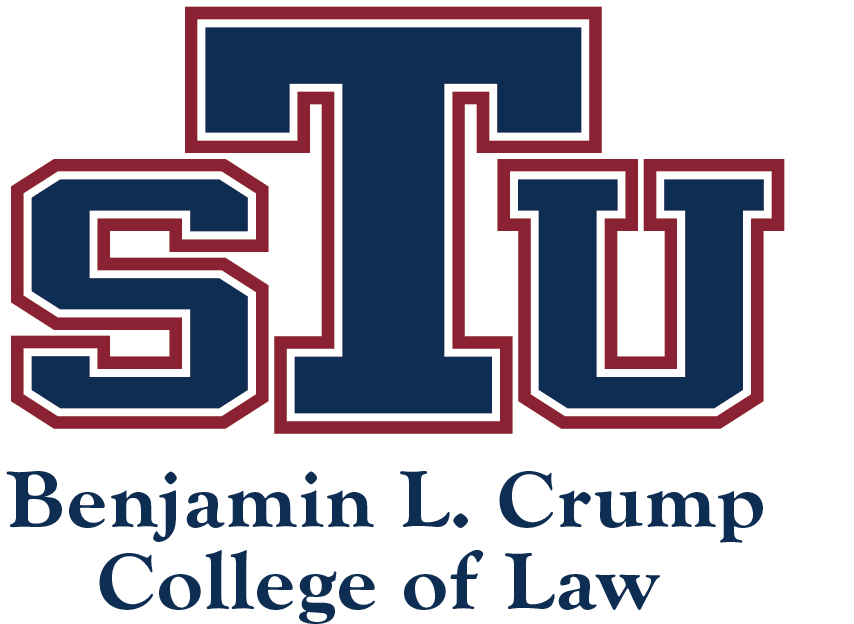J.S.D. Faculty
Administrative Oversight
The Graduate Program in Intercultural Human Rights is a program of the College of Law and its faculty. The J.S.D. program is one component of the Graduate Program in Intercultural Human Rights.
Professor Dr. iur. Siegfried Wiessner and Professor Dr. iur. Roza Pati oversee and implement the program, serving as Directors. Program Manager, Haydee Gonzalez, supports the administration.
Faculty
The Faculty of the J.S.D. Program has been carefully chosen for its unique combination of academic credentials and expertise with the practical experience in the field. Every student admitted to the J.S.D. Program will be supervised by a qualifying faculty member who must agree, in advance, to this assignment. Many faculty and guest lecturers in the LL.M. Program have already qualified to supervise a J.S.D. candidate. The supervising professor should hold the academic equivalent of a J.S.D. or Ph.D. degree him- or herself.
Key Faculty and Potential Supervisors Include:
W. Michael Reisman is a distinguished scholar of international law and jurisprudence and has published more than 20 books and more than 200 articles. He is one of the co-founders of the policy-oriented approach to law, which inspires this program. Professor Reisman has also served as President of the Inter-American Commission on Human Rights. He has given overall guidance and will provide continued support to the J.S.D. program.
Dr. iur. Siegfried Wiessner
Professor of Law at St. Thomas University College of Law
Director of the Graduate Program in Intercultural Human Rights
swiessner@stu.edu
Dr. iur. Siegfried Wiessner
Professor of Law at St. Thomas University College of Law
Director of the Graduate Program in Intercultural Human Rights
swiessner@stu.edu
Professor Siegfried Wiessner, has published widely in the fields of international law, constitutional law and jurisprudence; he lectured in the UN/UNITAR International Law Fellowship Programmes at The Hague and Tehran. With W. Michael Reisman, he has published the leading casebook on INTERNATIONAL LAW IN CONTEMPORARY PERSPECTIVE (Foundation Press, 2004). In 2017, he published Volume 1 of the series American Classics in International Law, entitled GENERAL THEORY OF INTERNATIONAL LAW (BRILL/Nijhoff). He teaches Constitutional Law, Introduction to Human Rights Law and seminars on the Rule of Law and International Law in the 21st Century.
Dr. iur. Roza Pati
Professor of Law at St. Thomas University College of Law,
Executive Director the Graduate Program in Intercultural Human Rights
rpati@stu.edu
Dr. iur. Roza Pati
Professor of Law at St. Thomas University College of Law,
Director of the Graduate Program in Intercultural Human Rights
Founder & Director of the John J. Brunetti Human Trafficking Academy
rpati@stu.edu
Dr. iur. Roza Pati is a former Member of Parliament and Cabinet Member — Secretary of State for Youth and Women — in the Government of Albania, and is a Member of the Pontifical Council of Justice and Peace at the Vatican. She has written in the field of international law, international criminal law, human rights law and human trafficking law. She teaches International Law, Human Trafficking Law & Policy, and Human Rights Law.
His Excellency Judge Dr. Fausto Pocar
Emeritus Professor of International Law, University of Milan
His Excellency Judge Dr. Fausto Pocar
Emeritus Professor of International Law, University of Milan
Judge Dr. Fausto Pocar is Professor of International Law at the Law Faculty of the University of Milan, where he has also served as the Dean of the Faculty of Political Sciences and as the Vice-Rector. He is the author of numerous publications on International Law, including Human Rights and Humanitarian Law, Private International Law and European Law. He has lectured at The Hague Academy of International Law. He is a member of the board of the Institute of International Law and Vice-President of San Remo’s Institute of International Humanitarian Law, as well as a member of several other international law associations.
Amy Ronner, Ph.D.
Emeritus Professor of Law at St. Thomas University College of Law
aronner@stu.edu
Amy Ronner, Ph.D.
Emeritus Professor of Law at St. Thomas University College of Law
aronner@stu.edu
Amy Ronner is the creator, and has been, until 1999, also the Director of the St. Thomas University College of Law’s Appellate Litigation Clinic. She is well-published in her field with several books and articles. She teaches Constitutional Law and Wills and Trusts.
Adeno Addis, J.S.D.
W. Ray Forrester Professor of Public and Constitutional Law at Tulane Law School
aaddis@tulane.edu
Adeno Addis, J.S.D.
W. Ray Forrester Professor of Public and Constitutional Law at Tulane Law School
aaddis@tulane.edu
Adeno Addis, J.S.D., received his undergraduate education in Australia and did his graduate work in the United States. He has published extensively on constitutional law, international human rights, jurisprudence and public international law. Recent publications include “Special Temporary Measures and the Norm of Equality,” 45 Netherlands Yearbook of International Law 311 (2014); “The Role of Human Dignity in a World of Plural Values and Ethical Commitments,” 31 Netherlands Quarterly of Human Rights 403 (2013). He is widely published in the fields of international law and legal theory.
Dr. iur. Eckart Klein
Myres S. McDougal Professor of Law at the Yale Law School
klein@uni-potsdam.de
Dr. iur. Eckart Klein is the leading German scholar in the field of human rights and an immediate past member of the United Nations Human Rights Committee. Professor Klein teaches the class on
The Covenant of Civil and Political Rights: The Scope of the Rights and the Role of the Human Rights Committee.
Alfred Light, Ph.D.
Emeritus Professor of Law at St. Thomas University College of Law
alight@stu.edu
Alfred Light, Ph.D.
Emeritus Professor of Law at St. Thomas University College of Law
alight@stu.edu
Alfred Light has published numerous books and articles in the areas of federalism and intergovernmental relations, constitutional law, and environmental law. He is active in various bar associations and currently serves as the liaison of the American Bar Association’s Section of Environment, Energy, and Resources to its Standing Committee on Specialization. He teaches Civil Procedure, Environmental Law and Human Rights and the Environment.
Dr. Mark Kielsgard
J.D. Programme Director, City University of Hong Kong School of Law
mkielsga@cityu.edu.hk
Dr. Mark Kielsgard
J.D. Programme Director, City University of Hong Kong School of Law
mkielsga@cityu.edu.hk
Dr. Mark Kielsgard is a prolific scholar and human rights activist is Assistant Professor of Law and Director of Mooting and Advocacy at the City University of Hong Kong. In 2012-2013, Dr. Kielsgard was the recipient of the prestigious Myres S. McDougal Prize.
Dr. iur. Markus Krajewski
Chair of Public Law and International Law at the Friedrich Alexander University Faculty of Law and Economics in Erlangen, Germany.
voelkerrecht@fau.de
Dr. iur. Markus Krajewski
Chair of Public Law and International Law at the Friedrich Alexander University Faculty of Law and Economics in Erlangen, Germany.
voelkerrecht@fau.de
Dr. iur. Markus Krajewski studied law, economics and political science at the University of Hamburg (Germany) and the Florida State University (FSU) at Tallahassee (US). He obtained his MSc in International Affairs from FSU and his First Legal State exam from Hamburg. Following he was a Research Fellow at the Institute of International Affairs at the University of Hamburg and a Legal Intern at the Hamburg Court of Appeals (Hanseatic Higher Regional Court, Hamburg). He obtained his PhD in 2001 from the University of Hamburg.
John Makdisi, S.J.D.
Emeritus Professor of Law at St. Thomas University College of Law
jmakdisi@stu.edu
John Makdisi, S.J.D.
Emeritus Professor of Law at St. Thomas University College of Law
jmakdisi@stu.edu
John Makdisi, is Emeritus Professor of Law and the former Dean of St. Thomas University, under whose direction the LL.M. Program in Intercultural Human Rights was established. He has written extensively on Islamic law and American property law. His book-length article on The Islamic Origins of the Common Law, 77 N. CAR. L. REV. 1635 (1999), offers a startling new theory for connections between Islam and the West. He also has an expertise in moral theology. His Ph.D. dissertation on THE OBJECT OF THE MORAL ACT: UNDERSTANDING ST. THOMAS AQUINAS THROUGH THE WORK OF STEVEN LONG AND MARTIN RHONHEIMER (Proquest 2017) offers new insights into moral action theory. Professor Makdisi served as dean of The University of Tulsa College of Law (1991-1994), Loyola University New Orleans School of Law (1996-1999), and St. Thomas University School of Law (1999-2003).
Dr. Toni Pfanner
Representative of the International Committee of the Red Cross (ICRC)
Dr. Toni Pfanner
Representative of the International Committee of the Red Cross (ICRC)
Dr. Toni Pfanner the Representative of the International Committee of the Red Cross (ICRC) in Singapore, is the former Chief Legal Advisor to the ICRC, a key actor in the implementation of international humanitarian law, and the former Editor of the International Review of the Red Cross. He has, inter alia, taught courses in the UN/UNITAR International Law Fellowship Programme at The Hague. He teaches the course on Humanitarian Law.
Other Potential Faculty
Applicants also have the right to choose a supervisor from outside the list provided above. The chosen supervising professor must be a scholar and expert in the field of applicant’s topic of dissertation, and he/she should hold the academic equivalent of a J.S.D. or Ph.D. degree him- or herself. The J.S.D. Committee must approve the chosen supervisor. The applicant must submit a C.V. of the potential supervisor, his/her declaration of acceptance of supervision, and his/her contact information.













